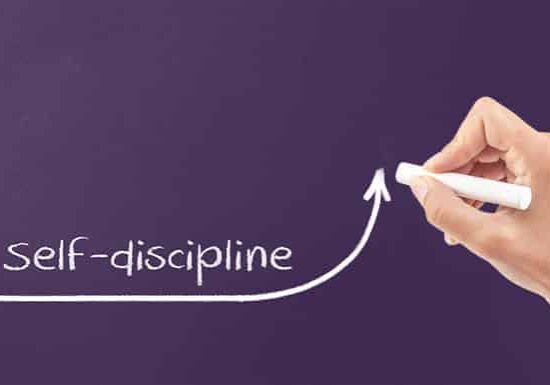Self Discipline for Students
Updated: June 19, 2024
Published: December 2, 2019

Self discipline is an invaluable skill to learn and develop over the course of your life, and will help you tremendously throughout your academic career. Inevitably, as a student, there will always be subjects you don’t love and periods of distraction in your life, which is why it is so important to develop self discipline in order to succeed through those times of less motivation. Even if it is something that doesn’t come naturally to you, there are ways to find and cultivate strategies. Here are some great tips on how to develop good self discipline for students.
Self Discipline Definition

Photo by Pixabay from Pexels
Just what exactly is self discipline and how can it relate to students? Self discipline means regulating oneself and making corrections to one’s thoughts and behaviors in order to improve oneself.
For students, this can mean: keeping yourself focused on assignments or in classes, not getting yourself distracted during lectures or times of study and making sure that you’re on track with deadlines. This is especially important once you enter college, where you will need to rely on yourself and only yourself to meet your academic goals.
Importance of Self Discipline

Photo by bruce mars from Pexels
- Power to achieve your goals
- Feeling of being in control of yourself
- Helps you stick to your decisions and not lose sight of your goals
- Helps you accomplish goals
- Self-control and inner strength
- Gives you the ability to not give up
Steps to Self Discipline
Ready to start learning and developing your own self discipline? Get started here with these easy steps towards self discipline for students.

Photo from Pexels
1. Know Your Strengths and Weaknesses
Are you always avoiding essays but hit the ground running when it’s time for a lab assignment? If you can recognize what subjects or types of projects you enjoy and the ones you don’t, you can start to make strategies for self discipline.
Start by anticipating that you may have struggles through a specific class or project, and preemptively make plans to limit distractions, increase reward systems and schedule non-negotiable study times into your weekly agenda.
2. Know When You Are Motivated
If you are feeling great and jamming along to an assignment no problem, take a moment to notice what makes it easier for you and write that down. Is it your current music playlist? The time of day? The amazing breakfast you had time to eat because you woke up early?
Take notice of these factors that increase your motivation and productivity. Then, you can make plans to add these motivation factors to whenever or whatever you are studying!
3. Recognize Your Downfalls
When you find yourself getting distracted, make a note of the circumstances so that you can avoid the same pitfalls again.
For example, if your roommate always gets home in the early evening and you find yourself chatting away and losing focus, try not to schedule your study time for that hour. Or if you notice that skipping lunch has your head in a fog, make sure to eat at the proper time. Try to limit screen time distractions as well, or allow yourself a break, but set timers for your distraction times.
4. Stay Positive
If you feel yourself slipping, don’t lose hope! If you feel you are losing control of your actions and find yourself falling for the distractions again, instead of getting discouraged just take notes about it and challenge yourself to not let it happen again. Think positive and use your mistakes to your advantage! A positive mind and attitude go a long way towards your success as a student.
5. Get Support
A great way to stop study distractions is by starting or joining a study group, where the whole focus is getting assignments done or going over readings/lectures. You can also let your family members, friends, and housemates know when you’ll be studying so they won’t distract you.
Finally, use your technology to support you. You can set up calendars on your phone with deadlines and reminders. You can also set screen time limits for certain phone applications so that you don’t spend too much time on social media when you should be studying.
6. Get Better at Time Management
Great time management can help you limit procrastination and stress, achieve your goals, and make your free time more enjoyable because you won’t be worried about what else you could be getting done. Make it a point to improve your time management skills in order to increase your self discipline as a student.
For more tips, check out our guide on time management for students.
Benefits of Self Discipline

Photo by Sebastian Voortman from Pexels
Once you have a good handle on your self discipline, you will reap many benefits, such as:
- Feeling of being in control of yourself
- Higher rates of goal achievement and success
- Overcome addictions and procrastination
- Feeling more motivation towards your goals
- Higher satisfaction of accomplishments
How to Be a Disciplined Student in School
If you are taking classes in person or online, you will need to learn to become a self-disciplined student.
This is especially true for online students. With increased flexibility, such as with fully online University of the People, comes increased responsibility to keep yourself on track with lessons, assignments and deadlines. You are solely responsible for your success or failure as an online student, and one of the ways you can succeed is through self discipline.
As as student, here are some ways to improve your self discipline:
- Put away your phone or other distractions
- Take good notes
- Update your calendar and review deadlines often
- Make your own personal deadlines for larger essays or projects
- Set up a good study area at home for yourself
- Make friends in school, but know when it’s time to socialize and when it’s time to study
Learning self discipline, while not natural to everyone, is a skill that can be developed and learned in order to increase your success as a student. All you need is a positive attitude, a good understanding of your strengths and weaknesses and a clear plan to stick to. Just follow our guide and tips and you’ll be on your way to being a self disciplined student in no time!
